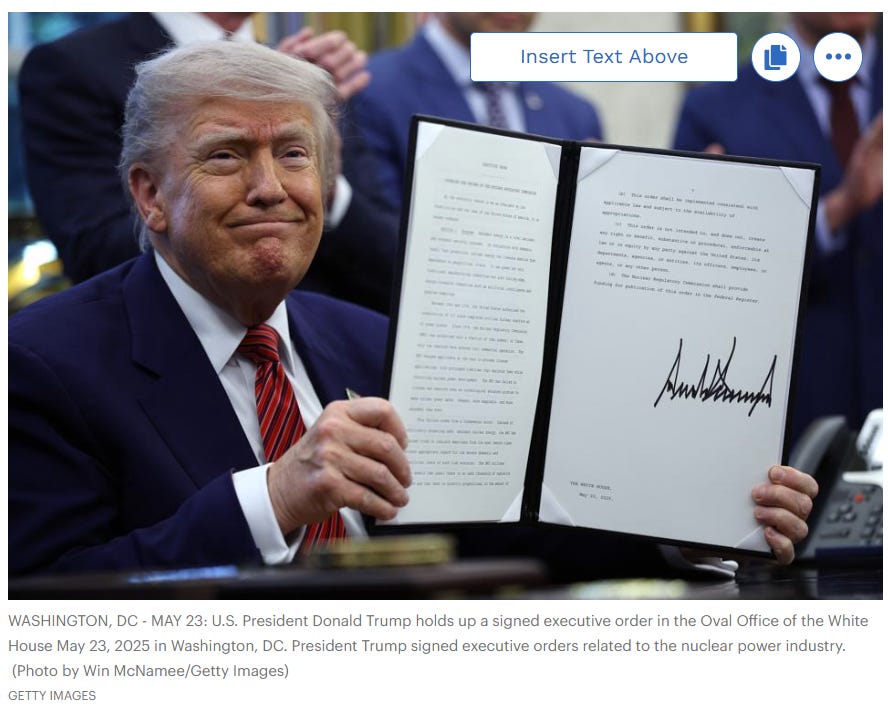Policy moves made last week by both congress and the White House signal an increasingly dramatic shift in U.S. energy policy resulting from the November 2024 elections. While congress is not moving towards a full repeal of the 2022 Inflation Reduction Act which Democrats herald as one of the Biden presidency’s signature achievements, the version of the reconciliation bill passed by the House last Wednesday - the One Big Beautiful Bill Act - places some of the heaviest subsidies for intermittent wind and solar generation and electric vehicles clearly in congress’s sights, with a new focus on nuclear power gaining favor.
While that bill severely limits the ability of wind and solar developers to access the investment tax credit for new projects, it simultaneously expands the credit for the builders of new nuclear power facilities. That alone signals a major shift in policy priorities: Taken together with the four executive orders designed to boost nuclear generation signed by President Donald Trump on Friday, the shift becomes a rising sea change.
Out is the Biden era’s focus on conforming U.S. energy and climate policies to the strictures of international agreements ostensibly designed to fight climate change. In is the Trump focus on creating a new era of American dominance in not just energy but also AI technology advancements and leveraging both to facilitate the energy and commerce-base foreign policy doctrine the President laid out in his speech in Riyadh, Saudi Arabia two weeks ago.
Keep reading with a 7-day free trial
Subscribe to Energy Transition Absurdities to keep reading this post and get 7 days of free access to the full post archives.




